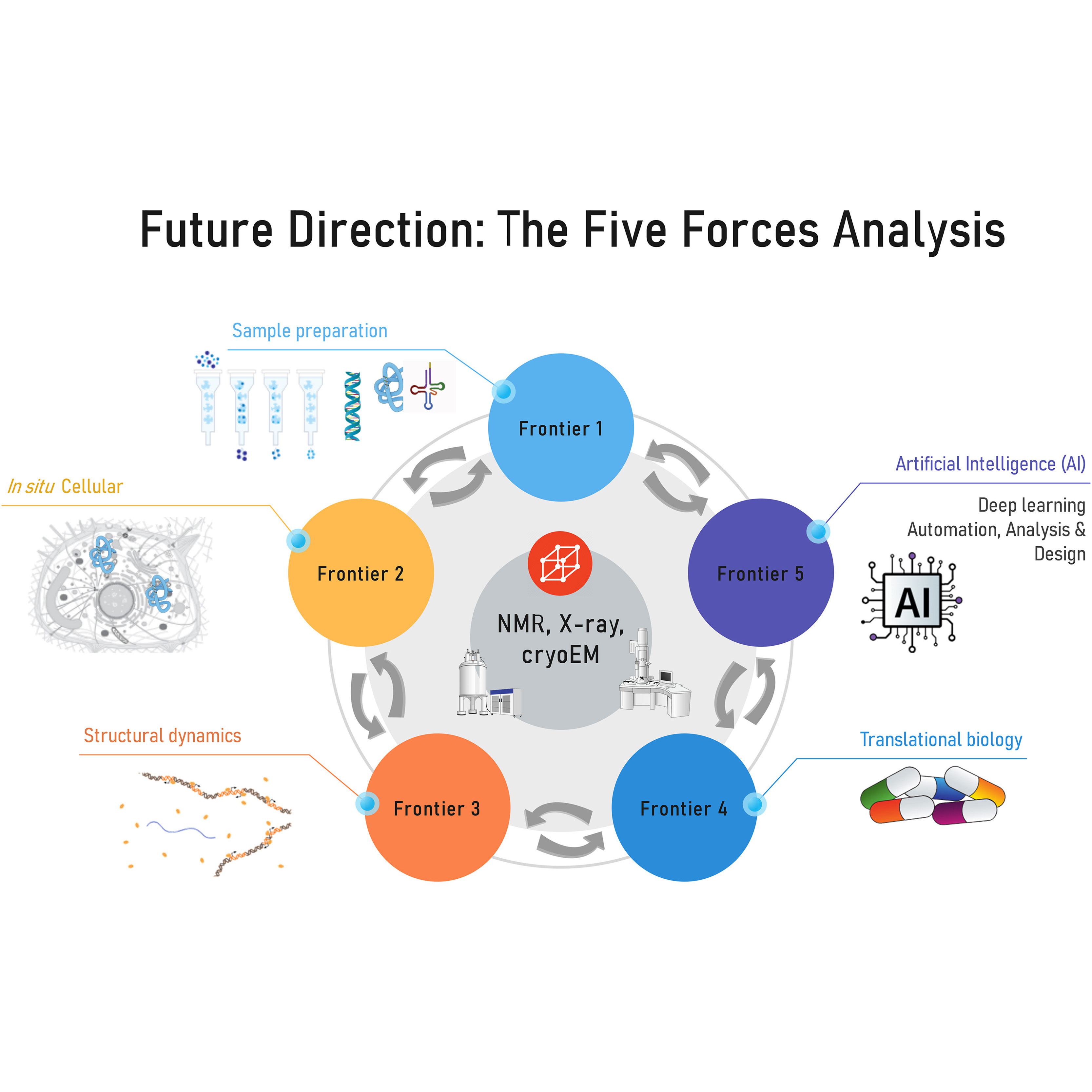18-Sep-2024
The Instruct-ERIC review paper “The future of integrated structural biology” has been published in Structure, detailing the current status of structural biology technologies, as well as discussing potential future developments in the field.
With input from a host of leading experts, both within the Instruct-ERIC consortium and out, the review examines the existing challenges in structural biology, and how short and long-term developments may have profound benefits for science as a whole down the line.
More specifically, the paper outlines the need for integrated structural biology: the combination of various techniques to ascertain both the structure and function of the fundamental elements of biology.
The synergy of NMR, cryo-EM, X-ray techniques, coupled with mass spectrometry and biomolecular analysis is crucial for truly in-depth studies of proteins, nucleic acids, and the other building blocks of biological life.
The advances in AI that have taken over the public consciousness in recent years, in particular prediction software such as AlphaFold, are already sending shockwaves through structural biology labs in Europe and beyond. How researchers can successfully integrate these tools into their projects is discussed
The five frontiers for future development in structural biology include:
All techniques at the current forefront of structural biology, and in its near and long-term future, are available through Instruct-ERIC. Researchers are invited to apply to access any of these techniques for their research; whilst early-career researchers can explore additional opportunities, including training courses, internships, dedicated access calls, and R&D funding.
